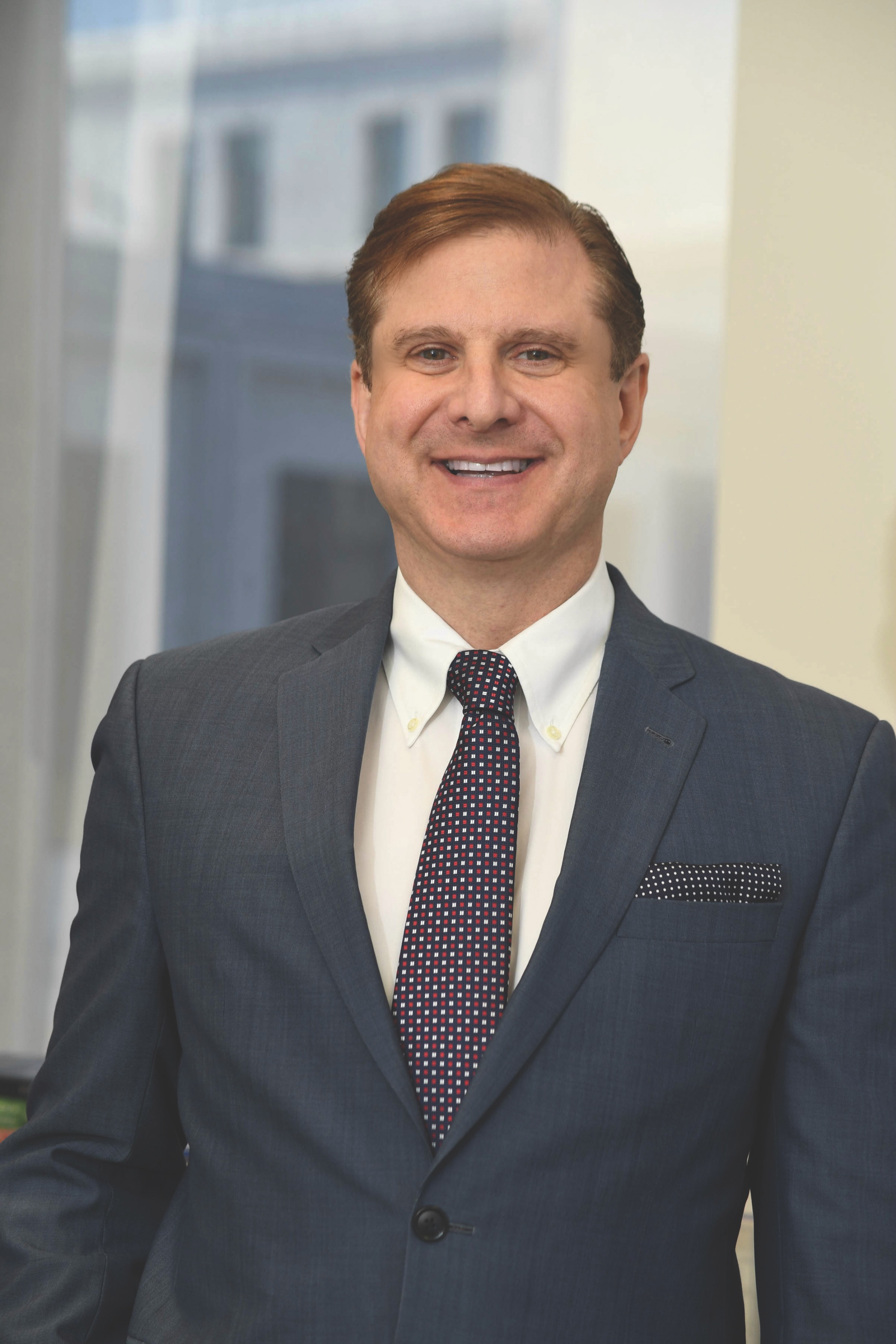
Everything about the offices of the Los Angeles City Controller is exactly as you might imagine: soft footfalls in the hallways, beige carpeting, people working studiously at their bland cubicles. It has that air of an office whose job it is to crunch numbers, issue reports and balance budgets.
And then you walk into Ron Galperin’s office, where light pours in from the downtown city streets, and the controller is dressed in an ocher suit with a striped orange tie and matching striped socks.
He exudes warmth and joyous energy before rising from his desk and hobbling forward. A pair of crutches is pushed up against the wall but he doesn’t use them. Galperin is recovering from being hit by a car but says he’s fine. We move to a small table at the far side of his office, where suddenly it feels like we’re having a chat around the dinner table rather than a formal interview.
The 54-year-old attorney took over the office of the controller in July 2013, breaking with convention to become the first Neighborhood Council member to be elected to a city office. But then nothing about Galperin is conventional.
Coming from a long line of rabbis (his father, grandfather and great-grandfather were rabbis), Galperin also is known for his cantorial skills, which he honed over 20 years as a chazzan at B’nai Emet in Montebello. He is married to Temple Akiba Rabbi Zachary Shapiro and the couple recently celebrated 20 years together.
While Galperin is delighted to discuss his work, he prefers to spend some time talking about his husband, “because Zach is my favorite subject.” He recalls how within 10 seconds of meeting Shapiro at a Yom Kippur break-fast meal at what was then University Synagogue, “I decided this would be the person I wanted to spend the rest of my life with … which sounds insane.”
Nonetheless, when the couple went on their first date, Shapiro told Galperin his mission in life was to bring goodness into the world. “I thought he’s either the biggest Pollyanna I’ve ever met or he’s the most incredible person, and he’s actually both in many ways,” Galperin said. “He has this unbridled optimism and this unbelievable faith in people.”
The irony doesn’t escape Galperin that although he didn’t follow his family lineage to the pulpit, he wound up marrying a rabbi. Then he laughs long and loud, noting, “They say the two things you’re not supposed to talk about at the dinner table are politics and religion, but what else are [Zach and I] going to talk about?”
Galperin’s unique Jewish background informs much of his work today. His father was a Holocaust survivor from Romania and his mother was Israeli.
“They both fought in the war of Independence,” Gallperin said. “My mother was in the Haganah and was a strong, passionate person of tremendous principle. Both my parents were dedicated to working in the community.”
He argues it’s no accident that “you have so many people who are Jewish that are involved in public service. It’s an integral part of the fabric of what Jewish values are.”
Even before he was elected, Galperin said he became obsessed with where the city’s money was going. “For me, that came down to, How do you make any government a lot more accountable and make sure that somehow our scarce resources are being used to their very best?”
The answer was implementing what he calls his “three T’s”: transparency, trust and transformation. When it came to transparency, barely three months into his term, Galperin established ControlPanel LA, where people can log on to the city’s first open-data portal and learn everything about the city’s financial data, from expenditures and revenues to payrolls and special funds. He followed that up with a UtilityPanel, GeoPanel, EcomonyPanel and PropertyPanel.
“In the past, not a lot of people went on to the controller’s site,” he said. “It was kind of a yawn. But we’ve had millions of page views. We’ve tried to make it much more accessible but also interesting and useful. For example, we mapped the marijuana dispensaries. I wanted to point out which dispensaries are being compliant and paying taxes and which are the ones that are being pursued by the city attorney’s office. We also have a dashboard about LAX, which tracks flights taking off and landing in real time as well as noise emissions, which many people are interested in.”
The “trust” element, he said, is important because, “I think those who are serving the people must constantly earn the trust of people, and you do that by being open and delivering and keeping your promises.”
“In the past, not a lot of people went on to the controller’s site. It was kind of a yawn. But we’ve had millions of page views.” — L.A. City Controller Ron Galperin
When it comes to transformation, Galperin said, “The city did many things in a particular way because that’s how it was done for the last 25 years, and that’s not a good reason. Everyone is being more techie; everyone has their smartphones and apps and people want much more responsiveness.”
Among his top priorities is tackling the homelessness crisis, which he admits can’t be solved overnight. “But as an elected official,” he said, “all of us will be rightfully judged on how we responded to this crisis.”
Last September, Galperin issued a 37-page report recommending the use of city land for emergency campgrounds, along with providing more policing and offering showers and bathrooms to homeless people.
He’s aware that for all the things he wants to work on, he can offer only recommendations and reports, as he doesn’t have the power to make policy. However, that doesn’t stop him thinking outside the box.
“A big priority for me is taking this office from just producing reports and being a vital part of making things happen,” Galperin said. “I’ve worked a lot with the city council, the mayor’s office and various departments to make sure we have recommendations that are doable. Also, when we are writing reports, we will sometimes give a choice to a department. [We’ll say], ‘We can write how X is not being done or we can write a report about how you initiated doing something.’ ”
Galperin said his big-picture goals include looking back and saying, “I left the city a much more forward-thinking and innovative place, one that welcomes new ideas, change and embraces it.”
He sees Los Angeles and its government “as something of a supertanker. You may want to move it in a particular way very quickly, although if you do, it can turn on its side. [It’s about] managing change and moving the needle in a significant way as quickly as you can but also as thoughtfully as you can.”






















 More news and opinions than at a Shabbat dinner, right in your inbox.
More news and opinions than at a Shabbat dinner, right in your inbox.